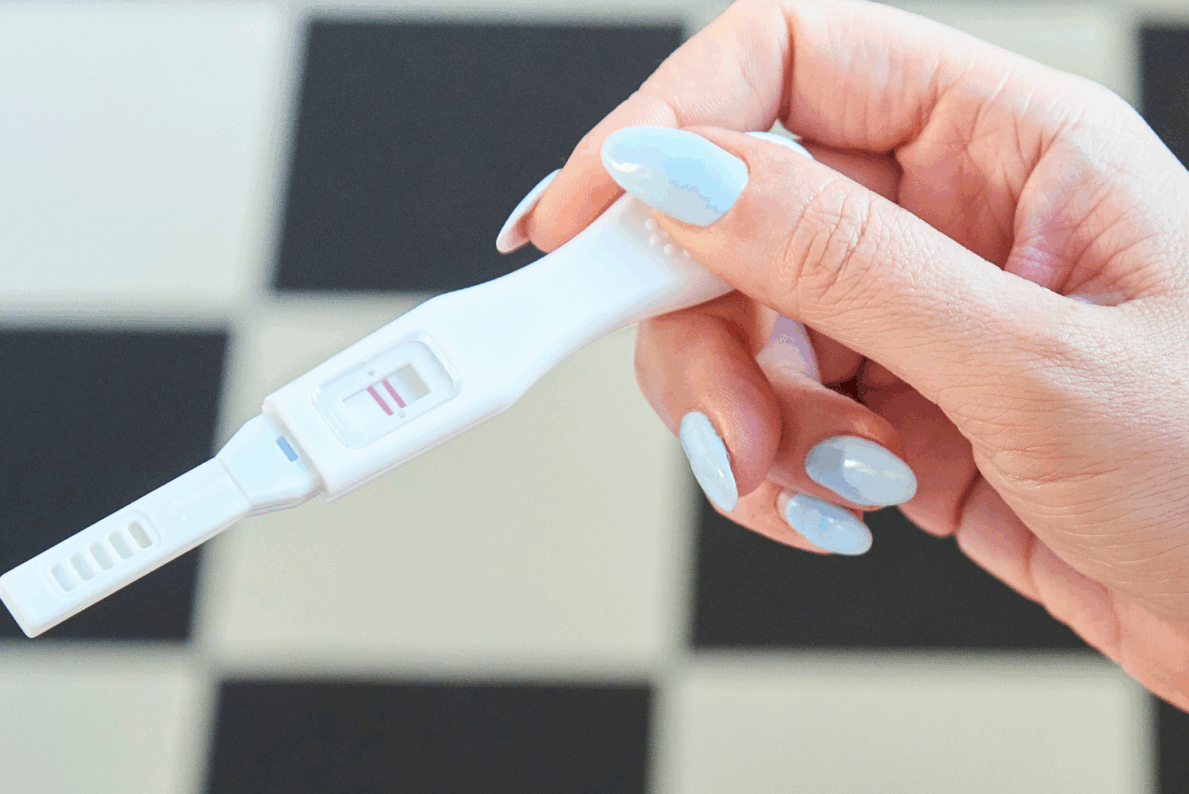A chemical pregnancy can leave you with many questions and emotions. What causes a chemical pregnancy? Did I miss the signs and symptoms? Can I get pregnant again after experiencing one?
You don’t have to navigate these thoughts and feelings alone. Pathway Health Clinic is here to answer your questions and provide the care you deserve. Keep reading to learn more about chemical pregnancy.
What is a Chemical Pregnancy?
A chemical pregnancy is an early miscarriage that happens within the first five weeks of pregnancy.
During this time, an embryo forms and may implant into the uterine lining, but it stops developing and is eventually lost. Because chemical pregnancies occur so early, many women don’t even realize they’ve happened.[1]
The term “chemical pregnancy” refers to the hormones in your body that trigger a positive pregnancy test. Within those first five weeks, the embryo prompts your body to produce human chorionic gonadotropin (hCG), a hormone signaling pregnancy. However, when the embryo stops growing, hCG levels drop, often leading to a negative test soon after.[2]
What Are the Symptoms of a Chemical Pregnancy?
The most reliable way to confirm a chemical pregnancy is through a pregnancy test.[3] Still, there are some common signs to watch for, including[4]:
- A positive pregnancy test without typical early pregnancy symptoms
- A positive test followed by a negative result a few weeks later
- A positive test followed by the arrival of your period
- A period that arrives about a week later than expected
- An unusually heavy period with more intense cramps
What Causes a Chemical Pregnancy?
The exact cause of a chemical pregnancy isn’t clear. Experts believe it may stem from issues like abnormalities in the embryo’s DNA or genetic makeup.
In other cases, the embryo may struggle to implant properly in the uterus, halting its growth. As a result, hCG levels decline, and the next pregnancy test will be negative.[5]
How Common Are Chemical Pregnancies?
Chemical pregnancies are surprisingly common. Approximately 25% of pregnancies end in miscarriage before 20 weeks, with about 80% of those occurring very early, often as chemical pregnancies.[6]
Many women experience a chemical pregnancy without even knowing it.[7] Certain factors may increase your likelihood of a chemical pregnancy, including[8]:
- Hormone levels that are too high or too low
- An unusually shaped uterus
- Conditions like thyroid disorders, polycystic ovarian syndrome (PCOS), or diabetes
- A sexually transmitted infection (STI)
- Being 35 or older
Can You Get Pregnant After a Chemical Pregnancy?
Experiencing a chemical pregnancy doesn’t mean you can’t have a healthy pregnancy in the future. Many women who have had a chemical pregnancy go on to carry future pregnancies to term without complications.[8]
However, if you experience repeated chemical pregnancies, it may be worth consulting a fertility specialist.[9]
How Do I Cope with a Chemical Pregnancy?
After a chemical pregnancy, your emotions may vary widely. Some women feel relief if they weren’t ready for a child, while others view it as a profound loss and grieve deeply. No matter what you’re feeling, your experience is valid.
You’re not alone in this. If you need a safe space to process your emotions or get answers, reach out to Pathway Health Clinic. Our compassionate patient care team are here to offer the support you need to find hope and healing.
Where Can I Find Free Pregnancy Services in Vista, California?
Think you might be pregnant? Don’t wait to get the care you deserve! Pathway Health Clinic offers free pregnancy tests and ultrasounds to confirm your pregnancy in a safe, confidential setting. Have questions or need to talk? We’re here for that too.
Call us at (760) 945-4673 or schedule your appointment online today! All services are free and confidential.
Sources
- Chemical Pregnancy: Causes, Symptoms & Treatment. Cleveland Clinic. (2021, December 11). https://my.clevelandclinic.org/health/diseases/22188-chemical-pregnancy#management-and-treatment
- See source #1.
- See source #1.
- See source #1.
- See source #1.
- See source #1.
- See source #1.
- See source #1.
- See source #1.


